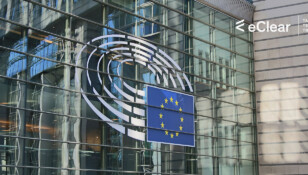| Country | Scope of the Change | Effective Date |
|---|---|---|
| Bulgaria | Reduced Rate for catering and restaurant services is abolished. Standard VAT rate of 20% applies. | January 1, 2025 |
| Estonia | Accommodation services taxed at 13% (up from 9%). Press publications taxed at 9%. | January 1, 2025 |
| EU | Introduction of the new SME scheme. The special VAT regime is allowing small enterprises (total annual turnover ≤ EUR 100 000) to sell goods and services without charging VAT to their customers (VAT exemption) and alleviate their VAT compliance obligations. | January 1, 2025 |
| EU | New rules for determining place of supply for B2C live-virtual events. VAT will become chargeable based on the consumer’s location, not where the supplier is based or where the event takes place. | January 1, 2025 |
| EU | VAT in the Digital Age (ViDA): Key implementation dates for e-invoicing and DRR In 2025 Member states may introduce mandatory e-invoicing for domestic B2B and B2C transactions. Prior authorization from the European Commission will no longer be required, provided the measures apply only to taxpayers established within their territory. | 2025 |
| Finland | Changes of VAT rates on certain goods and services. For example, books will increase from 10% to 14% and baby and children’s diapers will drop from 25.5% to 14%. | January 1, 2025 |
| Germany | Reduced rate of 7% for intra-community acquisitions and domestic supplies of works of art. | January 1, 2025 |
| Hungary | Extension of e-Invoicing scope to electricity and gas suppliers in B2B. | January 1, 2025 |
| Montenegro | VAT for catering/restaurant establishments increases to 15%. VAT for catering/restaurant establishments increases to 15%. VAT for short-term accommodation rentals increases from 7% to 15%. | January 1, 2025 |
| New Zealand | Introduction of Digital Services Tax levy on income of digital platforms/marketplaces. | January 1, 2025 |
| Philippines | VAT obligation introduced for resident and non-resident digital service providers. | May/June 2025 |
| Slovakia | Increase in the standard VAT rate to 23%. The reduced VAT rate of 10% will cease to exist. A new reduced 19% VAT rate is being introduced. The super reduced VAT rate of 5% remains in place. | January 1, 2025 |
| Spain | The temporarily introduced reduced tax rates of 2% and 7.5% expire at the end of 2024. From 2025, the reduced tax rates of 4% and 10% will apply to food. | January 1, 2025 |
| Sri Lanka | Possible introduction of VAT liability for foreign providers of digital services (no threshold). | TBD |
| Switzerland | Introduction of the Deemed Supplier Model for platform-based business models. | January 1, 2025 |
| Vietnam | Temporary reduced VAT rate of 8% extended until June 30, 2025. | January 1, 2025 |
Moving into 2025
The EU is taking significant steps to modernise VAT systems and adapt to the demands of the digital economy. The SME VAT exemption scheme will ease compliance for small enterprises, while new rules will tax virtual B2C events based on the consumer’s location, fostering fairer competition. The VAT in the Digital Age (ViDA) initiative further empowers member states to implement mandatory e-invoicing without prior EU approval, highlighting a strong shift towards digitalisation. These updates reflect a broader global trend of aligning VAT regulations with modern business practices.
As this is our last newsletter for 2024, we’d like to thank you for staying informed with us throughout the year. Our next issue will be released on January 8th.
To ensure your marketplace or platform remains compliant with VAT regulations in the new year, discover VATRules. Our database allows you to automatically classify your entire product portfolio according to the specific VAT rules of each delivery country.
Let’s stay in touch!
Stay up to date on the latest market trends, best practices and regulatory changes affecting cross-border trade by following us on LinkedIn.







